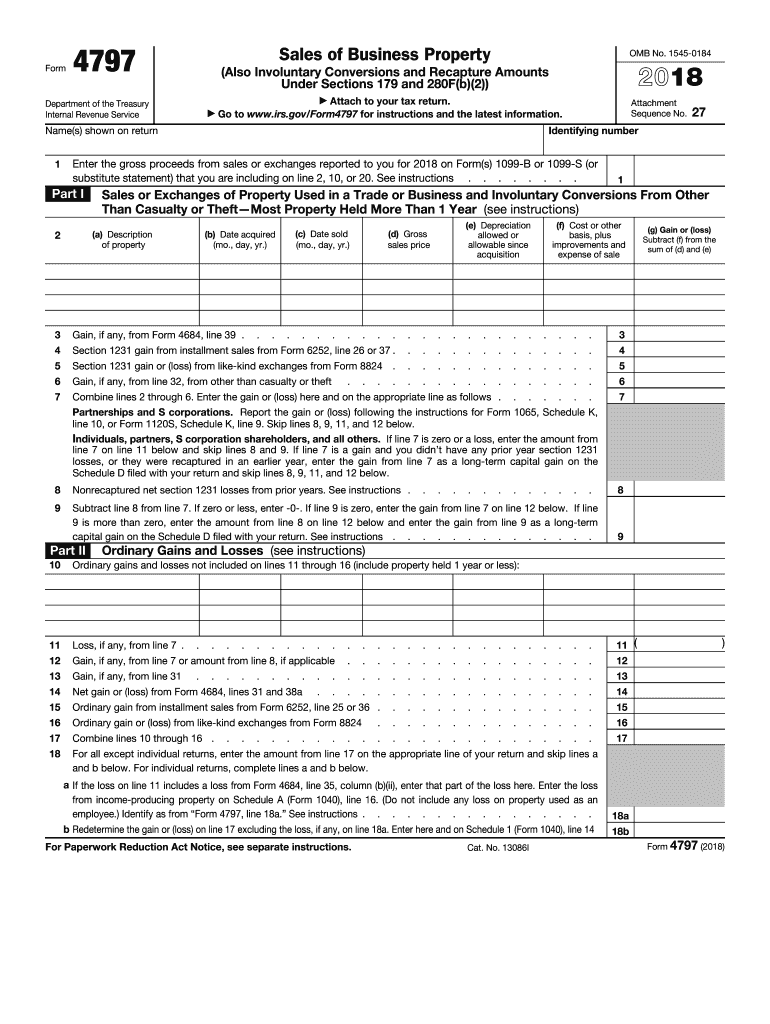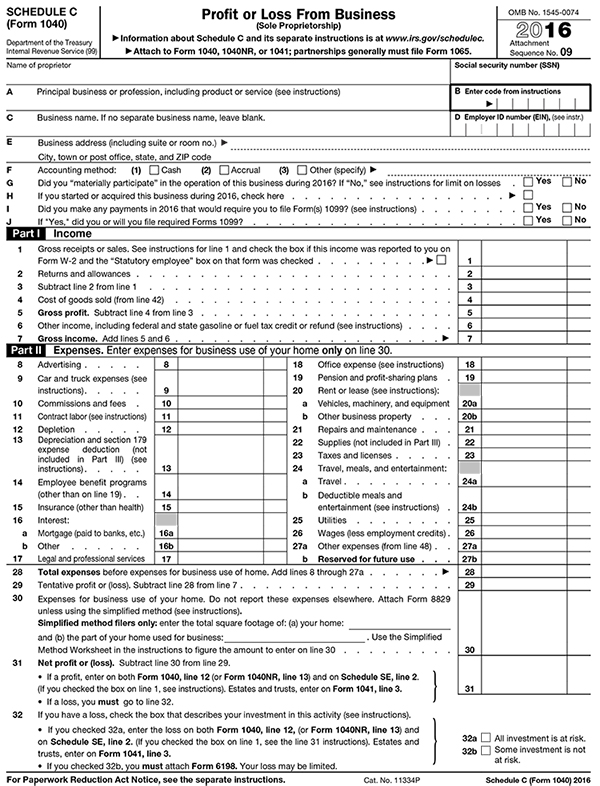Irs Loss From Sale Of Property
If you sell your home at a loss, can you deduct the amount from your taxes? Unfortunately, the answer is no. A loss on the sale of a personal residence is considered a nondeductible personal expense. You can only deduct losses on the sale of property used for business or investment purposes.
Writing off loss on sale of property on federal income taxes may hinge on whether it was purchased for investment purposes If vacant lots are purchased for investment purposes and sold later for. The computation of recapture amounts under sections 179 and 280F(b)(2) when the business use of section 179 or listed property decreases to 50% or less. Gains or losses treated as ordinary gains or losses, if you are a trader in securities or commodities and made a mark-to-market election under Internal Revenue Code section 475(f). If you sell real estate, you have to report the gain or loss on the sale to the IRS. You must report the gain on Form 8949 and also on Schedule D of your Form 1040. Gains from the sale of real estate property are capital gains and are subject to gains tax rules for long- and short-term gains.
Sale of decedent's home where no $250,000/$500,000 exclusion is allowable but as investment property, any capital loss is allowable and any loss or any capital gain is passed through to the beneficiaries on K-1 Line 11C. The loss is a capital loss reported on form 8949. It then carries to schedule D where it is used to reduce any capital gains that you have. If you still have a loss, it goes on line 13 of form 1040 where it is deducted from other income before tax is calculated. But there is a $3000 per year limit on capital losses.
Irs Loss From Sale Of Property Tax

The only way you can obtain a deduction if you sell your home at a loss is to convert it to a rental property before you sell it. However, your deductible loss will be limited. This is because when you convert property you held for personal use to rental use your tax basis (value for tax purposes) is the lesser of the following values on the date of the conversion:
- the property’s fair market value, or
- the property's tax basis.
Your tax basis is basically the property's original cost, plus the cost of any improvements you've made (but not repairs), minus any depreciation deductions taken--for example, if you claimed the home office deduction. Fair market value is the price at which the property would change hands between a buyer and a seller, neither under undue pressure to buy or sell, and both having reasonable knowledge of all the relevant facts. Sales of similar property in the area are helpful in figuring out the fair market value of the property. You may also elect to have the property’s value appraised as of the date of its conversion to rental property. Either way, it's very important to have a good estimate of your home's fair market value on the date of the conversion.
Because of this rule, if your personal residence has lost value since you bought it, turning it into a rental home won’t allow you to deduct the loss that occurred before the conversion when you eventually sell it. Only the drop in value after the conversion is deductible.
To learn more, see Nolo's section on Tax Deductions and Credits for Homeowners.
Renting your primary residence rather than selling it may be an attractive option if property values are down and you want to wait until they rebound to sell. Or perhaps it is a good market for rentals, so you decide not to sell the property. Also, if the sale of your personal residence would result in a nondeductible loss (losses realized on the sale of a primary residence are never deductible), converting it to a rental property may provide tax savings opportunities. Whatever the reason, the tax implications are complex when you rent your once primary residence.
Tax Deductions on a Rental:
As a landlord, the IRS allows you to claim deductions on your income taxes for depreciation and other write-offs for rental properties to offset the rental income. Tax deductions for landlords include mortgage interest, property taxes, insurance, association fees (HOA), utilities, repairs, and maintenance. Making improvements after the property has been converted to a rental often allows for a higher depreciable basis of the property. If the rental results in a loss, you may be limited in the amount you can deduct based on your income. You are allowed up to $25,000 in rental losses if your adjusted gross income is under $100,000. This amount is reduced by one dollar for every two dollars the adjusted gross income is above $100,000 and is totally phased out at $150,000. Losses that are not allowed in the current year will carry forward until they are used or are completely deductible in the year of the sale.
Tax Implications on a Sale:
When you sell your converted rental property that was once your primary residence, you may lose the home sale exclusion, which allows a taxpayer to exclude up to $250,000 for taxpayers who file a single return ($500,000 for taxpayers who file a joint return) of the gain from the sale (or exchange) of property owned and used as a principal residence for at least two of the five years before the sale. One of the first things to determine when selling a rental property that was once your primary residence is whether there was a gain or a loss according to the Internal Revenue Code Section 121.
The first step in determining a gain or a loss is to compare the sales price to the adjusted basis of the property (both at the time of conversion and at the time of the sale), as well as the sale price and the fair market value of the property when it was converted to a rental property.


:max_bytes(150000):strip_icc()/will-i-pay-tax-on-my-home-sale-2389003-v4-5b4cb96046e0fb0037e65b73.png)
For example, the homeowners purchased their first home in 2002 for $400,000. However, in 2011 the fair market value (FMV) of the home was only $310,000, so they decided to rent the property. A few years later they made $20,000 of improvements to the property. In 2015 they sold the property for $390,000. (Table I below shows how the adjusted basis was determined.) With a sale price of $390,000, the sale would result in a taxable gain of $63,725 ($390,000 - $326,275).
However, if the sale price was $200,000 in the example in the preceding paragraph, this would create a loss on the sale. The FMV of the property would then be used to determine a gain or loss on the sale. (Table II provides an example of how the adjusted basis for the loss is determined.) With a sale price of $200,000, there would be a loss of $36,275 ($200,000 - $236,275).
Once it is determined whether there is a gain or loss, the next step is to determine whether any portion of the gain qualifies for the personal residence exclusion or whether any portion of the loss may be deductible.
Irs Property Sales Capital Gains
There are many complex tax guidelines that need to be considered when converting a primary residence into a rental property and/or eventually selling the property. Please contact our office to help you determine what is best for your particular tax situation.